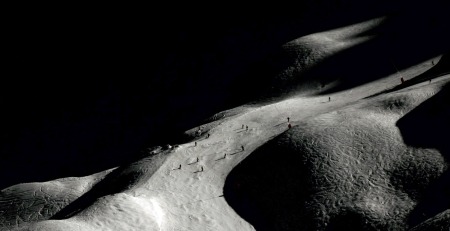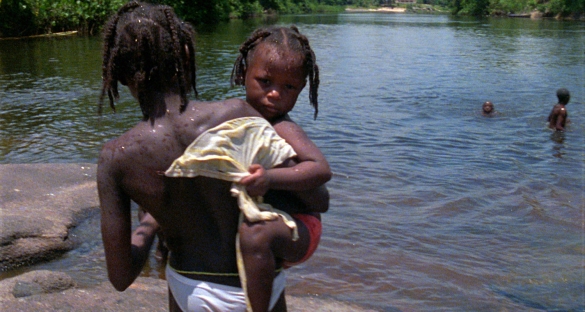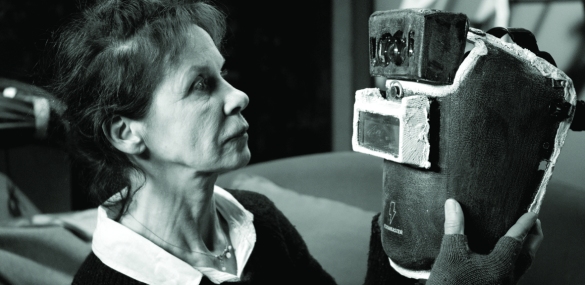Luciana Dumitru: MOUNTAIN IN SHADOW moves to more abstract images as they unfold, from the more romantic take in the most of your videos. What did you find interesting in this approach?
Tag Archives for Luciana Dumitru
RIVER RITES – Interview with BEN RUSSELL: “I never thought about film as a tool for translation but rather as a way of conjuring, as a means for bringing the unseen out of the shadows and transforming time into a body that we all could understand.”
Luciana Dumitru: Michel de Certeau writes about the experience of a French travel writer, Jean de Léry, in Tupi, using the term “remainder” for that which couldn’t be translated (into words). In Léry’s case, the overwhelming (subjective) aural and visual pleasures, from the language he couldn’t understand and strange sounds to the visceral experiences of being surrounded by naked bodies. De Certeau says “proximity is presence without possession.” In your experience of living within the community of Saramaccan animists can you talk about “remainders” that you wanted to pin down? If so, how did film help you? More importantly, what are the “remainders” of this film – RIVER RITES (which is different from the lived experience)?
NOT EYE – Interview with LAUREN MOFFATT: “Because of the role the camera plays as the conductor of plot in cinema, whoever is holding it essentially has the power.”
Luciana Dumitru: NOT EYE drew my attention in two directions: looking (and being looked upon) and the gaze in cinema. Some philosophers think of identity as fragmented, non-unitary, non-essentialist, unfixed. In looking and being looked upon, there is an undoing of each other, in a certain sense. You’ve said the character has a problem finding her own identity,“she sees it fragmented” because of the others’ look. Can you say a few words about the relation between the other’s look and the fragmented identity?



